
The Eucharist, also called Holy Communion, the Blessed Sacrament or the Lord's Supper, is a Christian rite, considered a sacrament in most churches and an ordinance in others. Christians believe that the rite was instituted by Jesus at the Last Supper, the night before his crucifixion, giving his disciples bread and wine. Passages in the New Testament state that he commanded them to "do this in memory of me" while referring to the bread as "my body" and the cup of wine as "the blood of my covenant, which is poured out for many". According to the synoptic Gospels this was at a Passover meal.
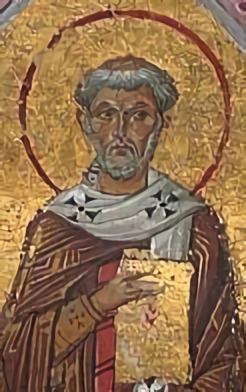
Pope Leo I, also known as Leo the Great, was Bishop of Rome from 29 September 440 until his death. He is the first of the three Popes listed in the Annuario Pontificio with the title "the Great", alongside Popes Gregory I and Nicholas I.

Charles Haddon Spurgeon was an English Particular Baptist preacher. Spurgeon remains highly influential among Christians of various denominations, to some of whom he is known as the "Prince of Preachers." He was a strong figure in the Reformed Baptist tradition, defending the 1689 London Baptist Confession of Faith, and opposing the liberal and pragmatic theological tendencies in the Church of his day.
The Latin phrase extra Ecclesiam nulla salus is a phrase referring to a Christian doctrine about who is to receive salvation.
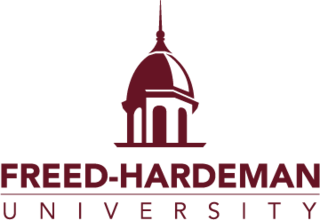
Freed–Hardeman University is a private university associated with the Churches of Christ and located in Henderson, Tennessee. It is primarily undergraduate and residential. The university also serves some commuting, part-time and adult students on-campus and through distance-learning programs.
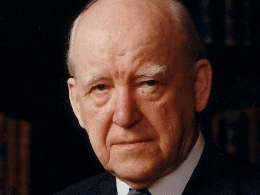
David Martyn Lloyd-Jones was a Welsh Congregationalist minister and medical doctor who was influential in the Calvinist wing of the British evangelical movement in the 20th century. For almost 30 years, he was the minister of Westminster Chapel in London.
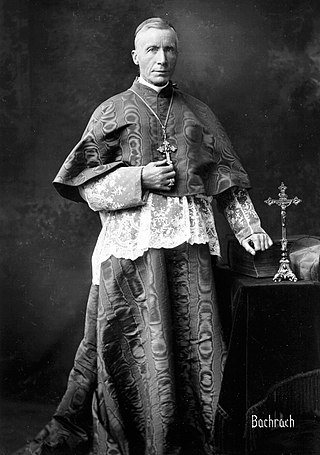
James Cardinal Gibbons was an American Catholic prelate who served as Apostolic Vicar of North Carolina from 1868 to 1872, Bishop of Richmond from 1872 to 1877, and as Archbishop of Baltimore from 1877 until his death.
Miaphysitism is the Christological doctrine that holds Jesus, the Incarnate Word, is fully divine and fully human, in one nature (physis). It is a position held by the Oriental Orthodox Churches. It differs from the Dyophysitism of the Catholic Church, Eastern Orthodox Churches, and the major Protestant denominations as defined by the Council of Chalcedon in 451, which holds that Jesus is one "person" in two "natures", a divine nature and a human nature.

In Catholicism, the Divine Mercy is a devotion to Jesus Christ associated with the reported apparitions of Jesus to Faustina Kowalska.

Jean-Louis Anne Madelain Lefebvre de Cheverus was a French-born Catholic prelate who served as the first Bishop of Boston. He later served as Bishop of Montauban and Archbishop of Bordeaux, both in France. He was elevated to the cardinalate in 1836.

The Good Shepherd is an image used in the pericope of John 10:1–21, in which Jesus Christ is depicted as the Good Shepherd who lays down his life for his sheep. Similar imagery is used in Psalm 23 and Ezekiel 34:11–16. The Good Shepherd is also discussed in the other gospels, the Epistle to the Hebrews, the First Epistle of Peter and the Book of Revelation.

Eucharist is the name that Catholic Christians give to the sacrament by which, according to their belief, the body and blood of Christ are present in the bread and wine consecrated during the Catholic eucharistic liturgy, generally known as the Mass. The definition of the Eucharist in the 1983 Code of Canon Law as the sacrament where Christ himself “is contained, offered, and received” points to the three aspects of the Eucharist according to Catholic theology: the real presence of Christ in the Eucharist, Holy Communion, and the holy sacrifice of the Mass.

The Mass is the central liturgical service of the Eucharist in the Catholic Church, in which bread and wine are consecrated and become the body and blood of Christ. As defined by the Church at the Council of Trent, in the Mass "the same Christ who offered himself once in a bloody manner on the altar of the cross, is present and offered in an unbloody manner". The Church describes the Mass as the "source and summit of the Christian life", and teaches that the Mass is a sacrifice, in which the sacramental bread and wine, through consecration by an ordained priest, become the sacrificial body, blood, soul, and divinity of Christ as the sacrifice on Calvary made truly present once again on the altar. The Catholic Church permits only baptised members in the state of grace to receive Christ in the Eucharist.
The Divine Service is a title given to the Eucharistic liturgy as used in the various Lutheran churches. It has its roots in the Pre-Tridentine Mass as revised by Martin Luther in his Formula missae of 1523 and his Deutsche Messe of 1526. It was further developed through the Kirchenordnungen of the sixteenth and seventeenth centuries that followed in Luther's tradition.
Nicholas Brodie Hardeman was an educator, debater, and a gospel preacher in the Churches of Christ. Along with Arvy G. Freed, Hardeman in 1907 co-founded what became Freed-Hardeman University, first known as the National Teachers Normal and Business College, or NTN&BC, in Henderson, Tennessee. In 1919, the institution was renamed Freed-Hardeman College. In 1990, it acquired university status. From 1925 to 1950, Hardeman was the president of Freed-Hardeman. He was an avid horse enthusiast, having participated in Tennessee Walking Horse competitions as an owner, rider, and a judge.

Divine filiation is the Christian doctrine that Jesus Christ is the only-begotten Son of God by nature, and when Christians are redeemed by Jesus they become sons of God by adoption. This doctrine is held by most Christians, but the phrase "divine filiation" is used primarily by Catholics. This doctrine is also referred to as divine sonship.
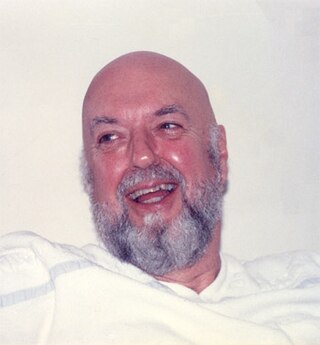
Monsignor John Arthur Trese was an American Catholic priest serving the Archdiocese of Detroit from 1951 to 2000.

The Mariology of the popes is the theological study of the influence that the popes have had on the development, formulation and transformation of the Roman Catholic Church's doctrines and devotions relating to the Blessed Virgin Mary.

Mary of the Divine Heart, born Maria Droste zu Vischering, was a German noblewoman and religious sister of the Catholic Congregation of Our Lady of Charity of the Good Shepherd. She is best known for having influenced Pope Leo XIII to consecrate the world to the Sacred Heart of Jesus. Pope Leo XIII called the solemn consecration "the greatest act of my pontificate".

Maria Faustyna Kowalska of the Blessed Sacrament, OLM was a Polish Catholic religious sister and mystic. Faustyna, popularly spelled "Faustina", had apparitions of Jesus Christ which inspired the Catholic devotion to the Divine Mercy, therefore she is sometimes called the "secretary" of Divine Mercy.















